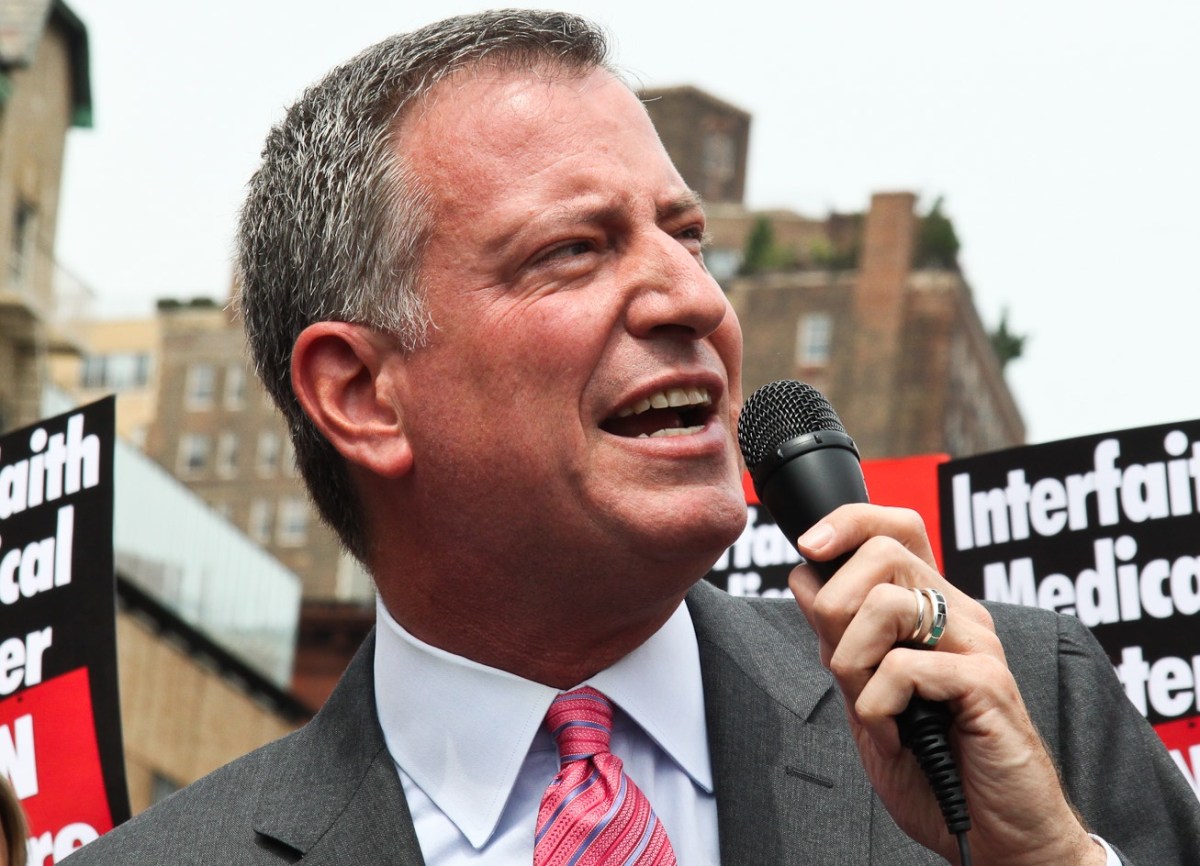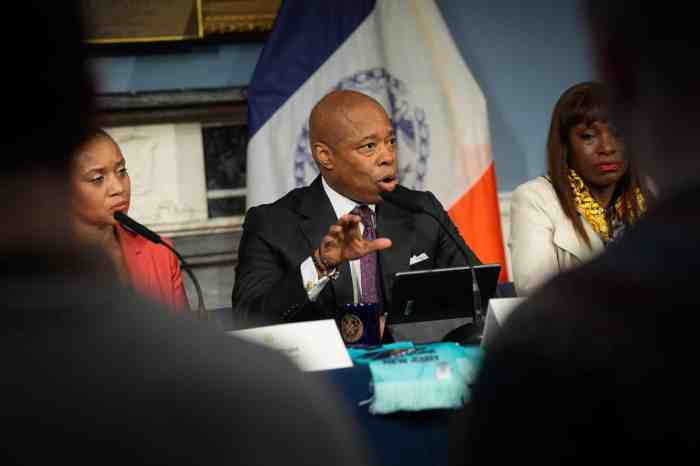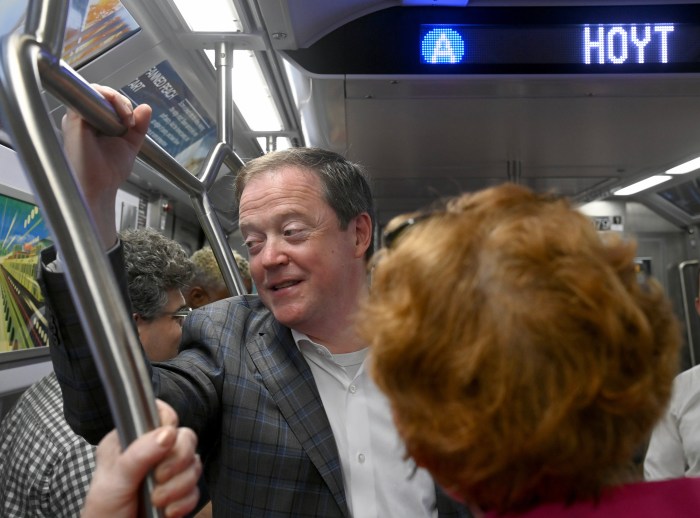Many Downtown voters could still smell the 9/11 fires 12 years ago — the last time New Yorkers were certain they would be getting a new mayor.
Today, the odor is a distant memory to some, a vivid one to others. But many who will be voting for the city’s next leader on Nov. 5 were too young or too far away from New York to remember.
It underscores the point that the city is in a far different place than it was when Mike Bloomberg took over in 2002.
We think Bill de Blasio is the best candidate to succeed Bloomberg. We like his plan for the city and his approach.
He wants to use some of our city pension funds to help finance 200,000 units of new affordable housing over the next 10 years. The plan will not only combat the housing shortage, one of the city’s most vexing problems, it will also spur economic activity, creating jobs.
De Blasio has made education the centerpiece of his campaign — committing to expanding full-day pre-K and after-school programs. He would be the first mayor to have a child in the public school system, which as we said previously, would send a powerful message to parents, particularly those who have felt they have had no voice in their children’s education.
He seeks a minuscule tax rate hike on the city’s wealthiest residents to pay for his education expansion. Critics say the tax plan will be dead on arrival in Albany, but that ignores the fact that the idea has caught fire with voters, giving it political momentum. De Blasio’s ties to Governor Andrew Cuomo go back two decades and, we believe, his plan has a realistic chance of passing.
De Blasio, currently the city’s public advocate, knows full well the daunting economic challenges he will face as he will have to negotiate long-overdue contracts with the municipal unions. His pro-labor outlook should give him a much better chance to get the unions to accept less than all of the retroactive raises, as well as the health and pension benefits, that they are expecting.
His main opponent, Republican Joe Lhota, a former deputy mayor under Rudy Giuliani, has run a misguided, lackluster campaign, which calls into question his credentials as an administrator.
We’ve heard irrelevant talk from Lhota about the Sandinistas, and suggestions that de Blasio somehow wants to take us back to the dark, crime-ridden days of the ’70s and ’80s.
The reality is that de Blasio has made it clear that one of his top contenders to become police commissioner is Bill Bratton, who was the best commissioner under Giuliani. It was actually Bratton’s successors who helped feed Giuliani’s well-deserved reputation for being the most divisive mayor in recent history.
Lhota would likely be somewhat of a departure from Giuliani, but not enough for our comfort.
De Blasio, on the other hand, made a particularly strong impression during the campaign with his fight to keep hospitals in Brooklyn, including Long Island College Hospital, from closing, even getting arrested at a protest to save L.I.C.H. In August, he led a “Hospitals Not Condos” rally outside the site of the former St. Vincent’s Hospital in Greenwich Village. While not promising — at least, not yet — to restore a full-service hospital to the Lower West Side, de Blasio’s message of keeping our hospitals open — and restoring healthcare where it has been lost — was deeply heartening for many in our community.
For many voters, this is the real essence of what de Blasio represents — a sense of hope that things can be different, that the interests of regular New Yorkers, as opposed to big development and big money, will be protected. His candidacy represents a “reset” moment.
The Villager endorses Bill de Blasio for mayor on Tues., Nov. 5.


















